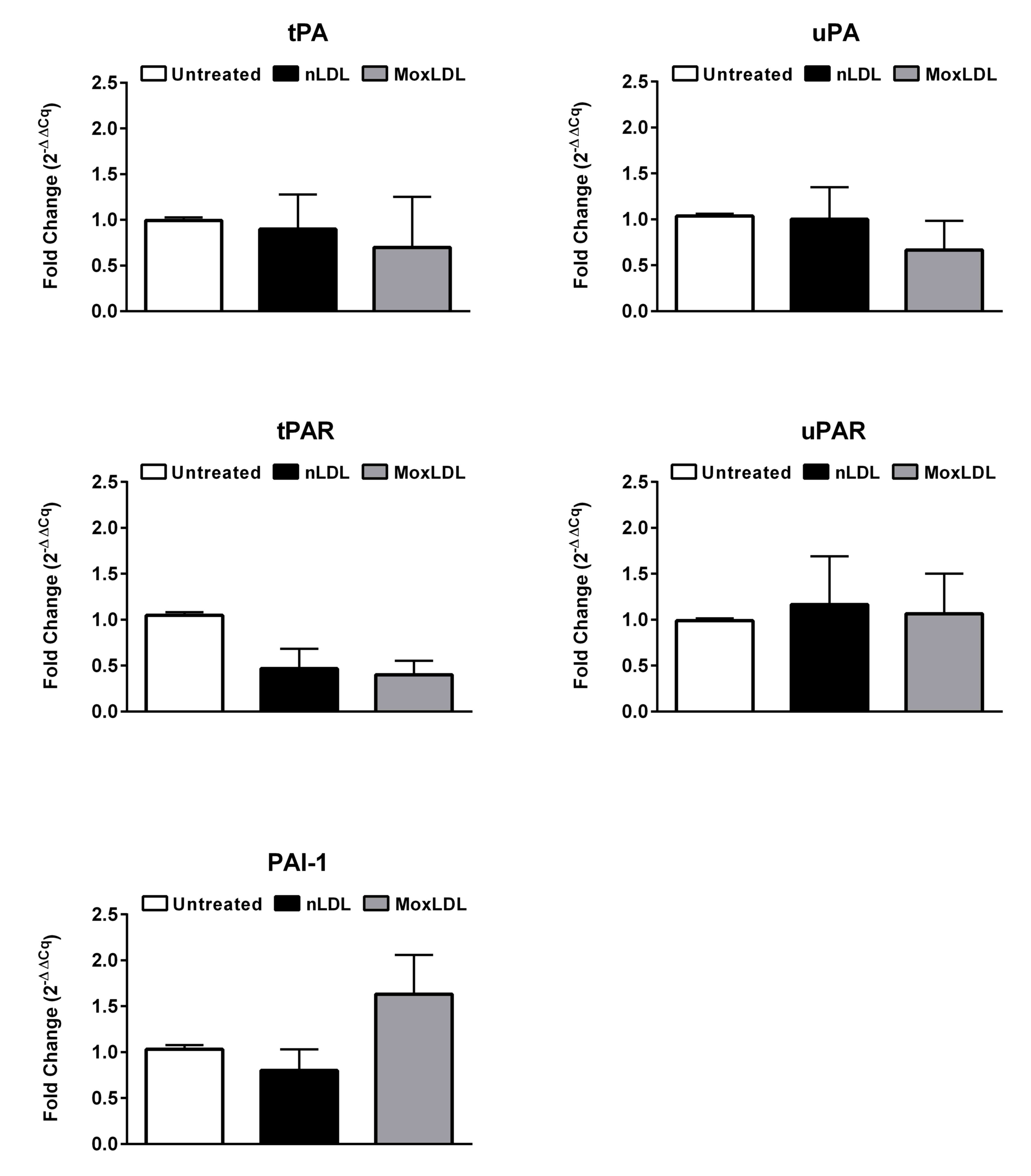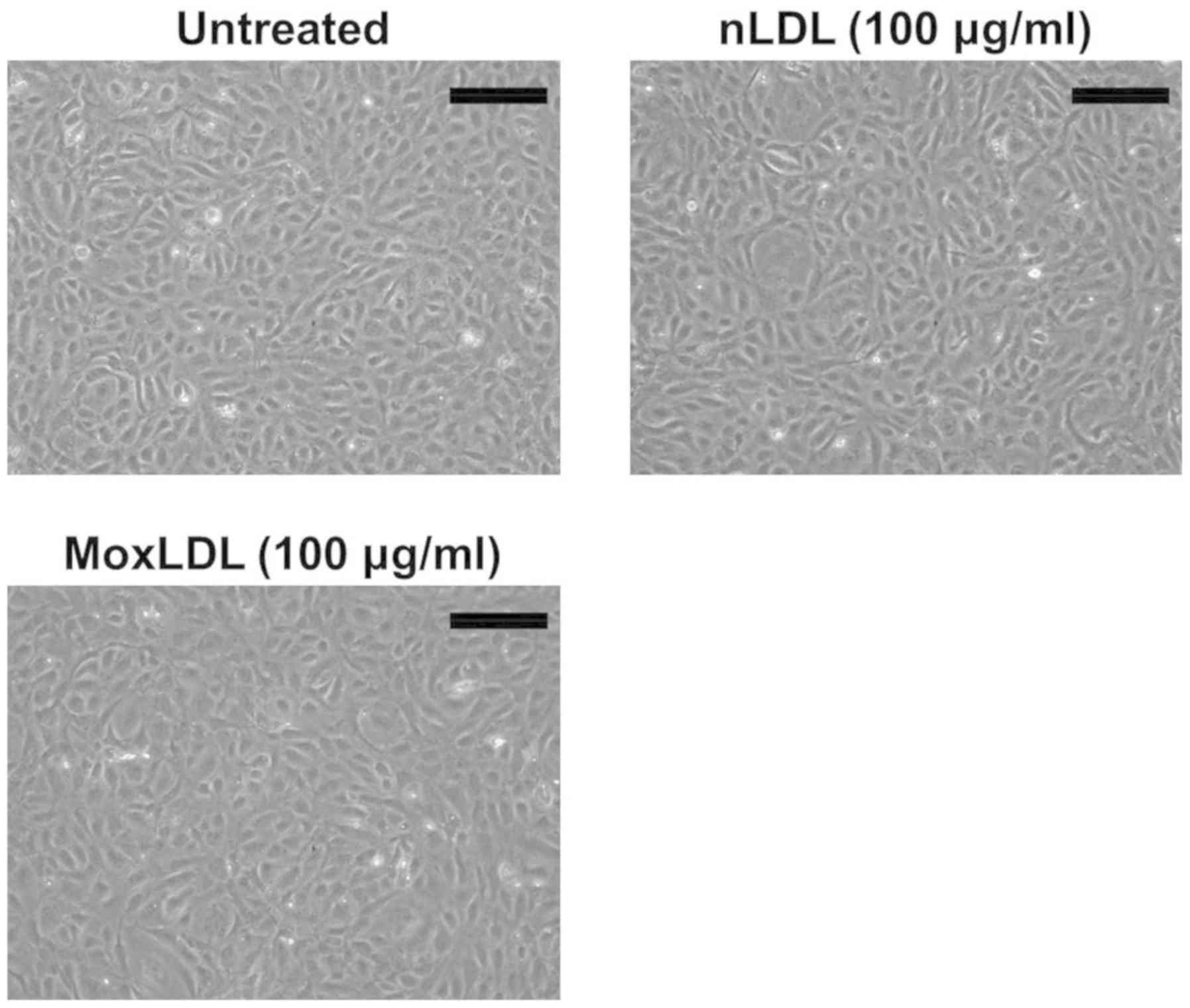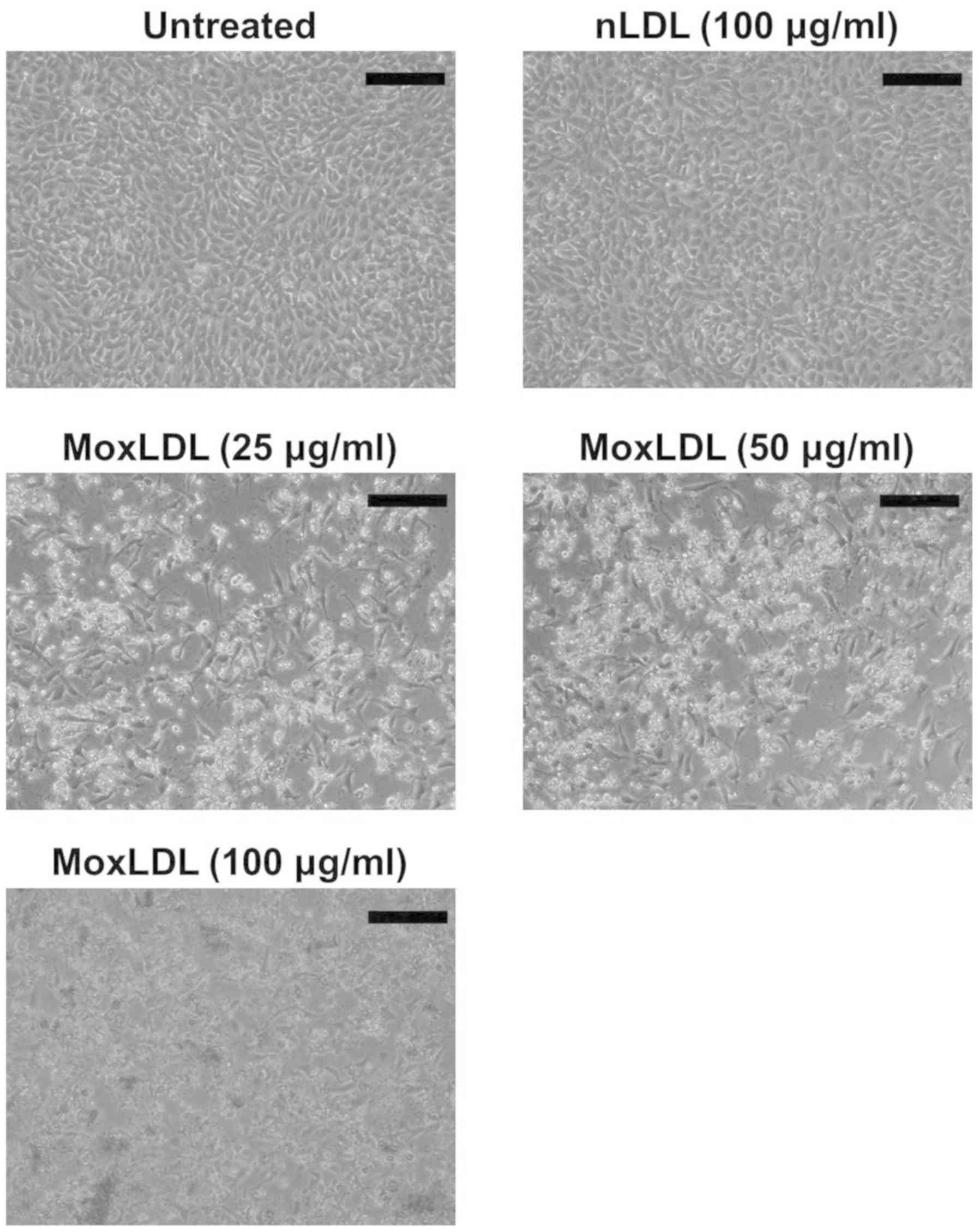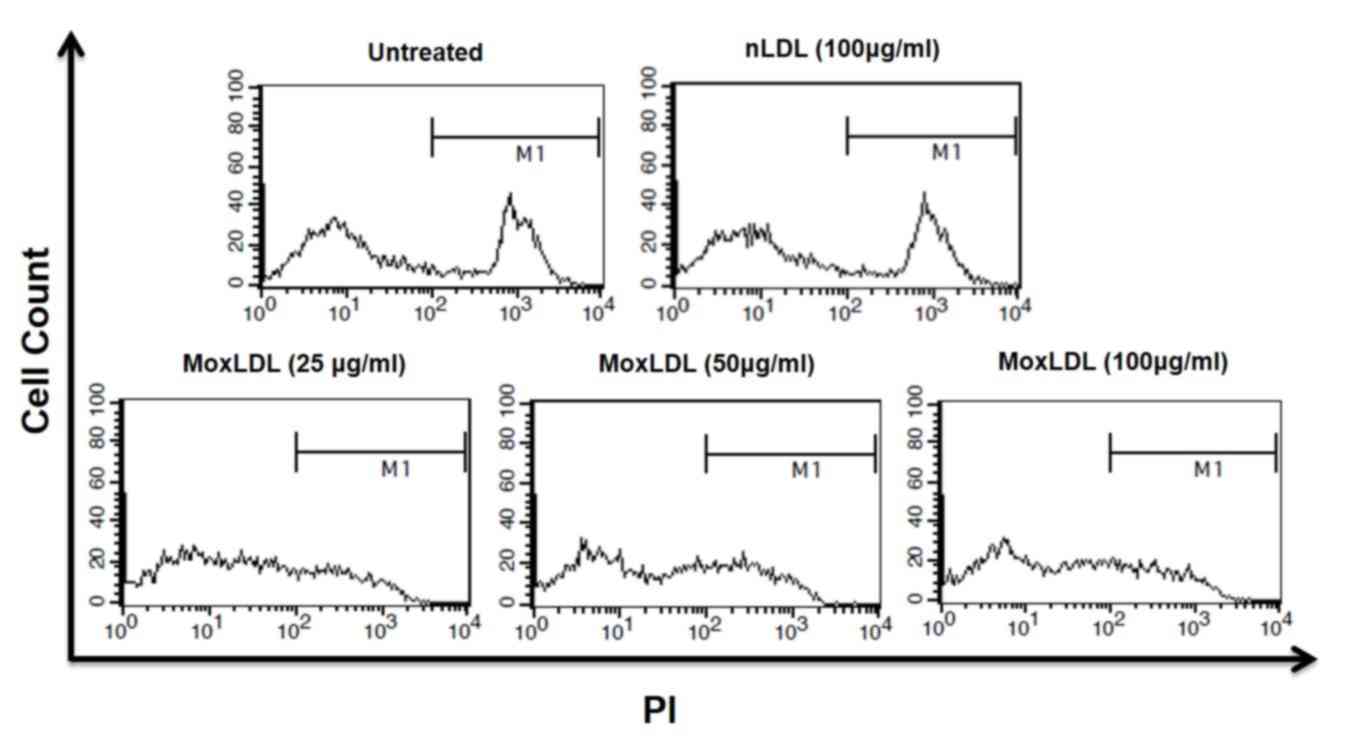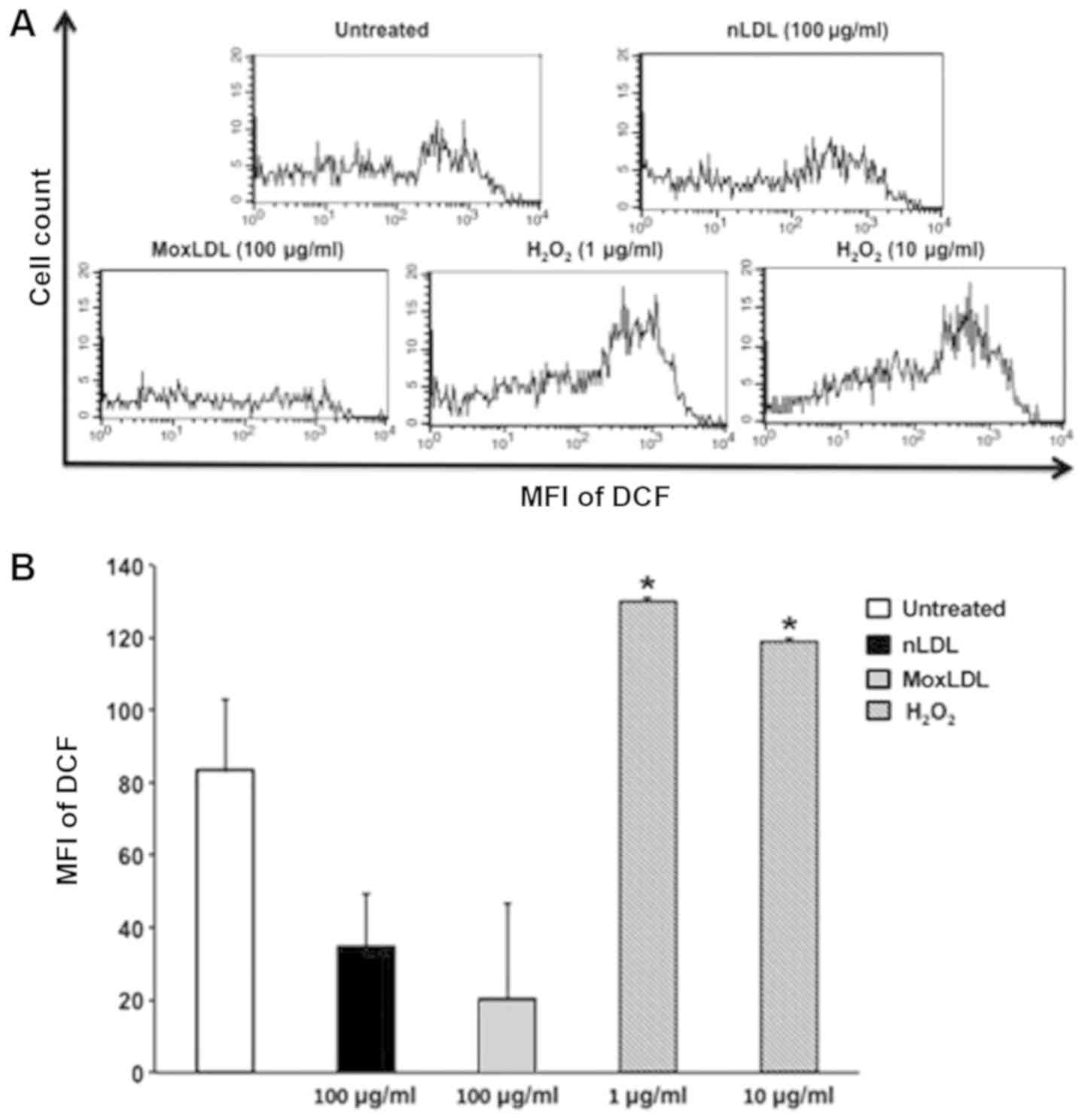|
1
|
Mathers CD and Loncar D: Projections of
global mortality and burden of disease from 2002 to 2030. PLoS Med.
3:e4422006. View Article : Google Scholar : PubMed/NCBI
|
|
2
|
Lozano R, Naghavi M, Foreman K, Lim S,
Shibuya K, Aboyans V, Abraham J, Adair T, Aggarwal R, Ahn SY, et
al: Global and regional mortality from 235 causes of death for 20
age groups in 1990 and 2010: A systematic analysis for the global
burden of disease study 2010. Lancet. 380:2095–2128. 2012.
View Article : Google Scholar : PubMed/NCBI
|
|
3
|
Virchow R: Gesammelte Abhandlungen zur
Wissenschaftlichen Medicin (Collected treatises on scientific
medicine)Meidinger Sohn & Comp.; 1856
|
|
4
|
Galkina E and Ley K: Immune and
inflammatory mechanisms of atherosclerosis (*). Ann Rev Immunol.
27:165–197. 2009. View Article : Google Scholar
|
|
5
|
Steinberg D, Parthasarathy S, Carew TE,
Khoo JC and Witztum JL: Beyond cholesterol. Modifications of
low-density lipoprotein that increase its atherogenicity. N Engl J
Med. 320:915–924. 1989.PubMed/NCBI
|
|
6
|
Hansson GK: Regulation of immune
mechanisms in atherosclerosis. Ann N Y Acad Sci. 947:157–166. 2001.
View Article : Google Scholar : PubMed/NCBI
|
|
7
|
Daugherty A, Dunn JL, Rateri DL and
Heinecke JW: Myeloperoxidase, a catalyst for lipoprotein oxidation,
is expressed in human atherosclerotic lesions. J Clin Invest.
94:437–444. 1994. View Article : Google Scholar : PubMed/NCBI
|
|
8
|
Delporte C, Boudjeltia KZ, Noyon C,
Furtmuller PG, Nuyens V, Slomianny MC, Madhoun P, Desmet JM, Raynal
P, Dufour D, et al: Impact of myeloperoxidase-LDL interactions on
enzyme activity and subsequent posttranslational oxidative
modifications of apoB-100. J Lipid Res. 55:747–757. 2014.
View Article : Google Scholar : PubMed/NCBI
|
|
9
|
Hazell LJ, Baernthaler G and Stocker R:
Correlation between intima-to-media ratio, apolipoprotein B-100,
myeloperoxidase and hypochlorite-oxidized proteins in human
atherosclerosis. Free Radic Biol Med. 31:1254–1262. 2001.
View Article : Google Scholar : PubMed/NCBI
|
|
10
|
Zhang R, Brennan ML, Fu X, Aviles RJ,
Pearce GL, Penn MS, Topol EJ, Sprecher DL and Hazen SL: Association
between myeloperoxidase levels and risk of coronary artery disease.
JAMA. 286:2136–2142. 2001. View Article : Google Scholar : PubMed/NCBI
|
|
11
|
Wobst J, Kessler T, Dang TA, Erdmann J and
Schunkert H: Role of sGC-dependent NO signalling and myocardial
infarction risk. J Mol Med (Berl). 93:383–394. 2015. View Article : Google Scholar : PubMed/NCBI
|
|
12
|
Cesarman-Maus G and Hajjar KA: Molecular
mechanisms of fibrinolysis. Br J Haematol. 129:307–321. 2005.
View Article : Google Scholar : PubMed/NCBI
|
|
13
|
Delporte C, Van Antwerpen P, Vanhamme L,
Roumeguere T and Zouaoui Boudjeltia K: Low-density lipoprotein
modified by myeloperoxidase in inflammatory pathways and clinical
studies. Mediators Inflamm. 2013:9715792013. View Article : Google Scholar : PubMed/NCBI
|
|
14
|
Zouaoui Boudjeltia K, Daher J, Van
Antwerpen P, Moguilevsky N, Delree P, Ducobu J, Raes M, Badran B,
Vanhaeverbeek M, Brohee D, et al: Exposure of endothelial cells to
physiological levels of myeloperoxidase-modified LDL delays
pericellular fibrinolysis. PLoS One. 7:e388102012. View Article : Google Scholar : PubMed/NCBI
|
|
15
|
El Samad G: Effect of myeloperoxidase
modified LDL on bovine and human aortic endothelial cells
(unpublished PhD thesis)University of Balamand; El Koura: 2018
|
|
16
|
Colon S, Page-McCaw P and Bhave G: Role of
hypohalous acids in basement membrane homeostasis. Antioxid Redox
Signal. 27:839–854. 2017. View Article : Google Scholar : PubMed/NCBI
|
|
17
|
Livak KJ and Schmittgen TD: Analysis of
relative gene expression data using real-time quantitative PCR and
the 2(-Delta Delta C(T)) method. Methods. 25:402–408. 2001.
View Article : Google Scholar : PubMed/NCBI
|
|
18
|
Eisenberg T, Carmona-Gutierrez D, Büttner
S, Tavernarakis N and Madeo F: Necrosis in yeast. Apoptosis.
15:257–268. 2010. View Article : Google Scholar : PubMed/NCBI
|
|
19
|
Ocampo A and Barrientos A: Quick and
reliable assessment of chronological life span in yeast cell
populations by flow cytometry. Mech Ageing Dev. 132:315–323. 2011.
View Article : Google Scholar : PubMed/NCBI
|
|
20
|
Deere D, Shen J, Vesey G, Bell P,
Bissinger P and Veal D: Flow cytometry and cell sorting for yeast
viability assessment and cell selection. Yeast. 14:147–160. 1998.
View Article : Google Scholar : PubMed/NCBI
|
|
21
|
Chapin JC and Hajjar KA: Fibrinolysis and
the control of blood coagulation. Blood Rev. 29:17–24. 2015.
View Article : Google Scholar : PubMed/NCBI
|
|
22
|
Eruslanov E and Kusmartsev S:
Identification of ROS using oxidized DCFDA and flow-cytometry.
Methods Mol Biol. 594:57–72. 2010. View Article : Google Scholar : PubMed/NCBI
|
|
23
|
Barter P: Lipoprotein metabolism and CKD:
Overview. Clin Exp Nephrol. 18:243–246. 2014. View Article : Google Scholar : PubMed/NCBI
|
|
24
|
Sugiyama S, Okada Y, Sukhova GK, Virmani
R, Heinecke JW and Libby P: Macrophage myeloperoxidase regulation
by granulocyte macrophage colony-stimulating factor in human
atherosclerosis and implications in acute coronary syndromes. Am J
Pathol. 158:879–891. 2001. View Article : Google Scholar : PubMed/NCBI
|
|
25
|
Steffen Y, Schewe T and Sies H:
Epicatechin protects endothelial cells against oxidized LDL and
maintains NO synthase. Biochem Biophys Res Commun. 331:1277–1283.
2005. View Article : Google Scholar : PubMed/NCBI
|
|
26
|
Daher J, Martin M, Rousseau A, Nuyens V,
Fayyad-Kazan H, Van Antwerpen P, Courbebaisse G, Martiat P, Badran
B, Dequiedt F, et al: Myeloperoxidase oxidized LDL interferes with
endothelial cell motility through miR-22 and heme oxygenase 1
induction: Possible involvement in reendothelialization of vascular
injuries. Mediators Inflamm. 2014:1346352014. View Article : Google Scholar : PubMed/NCBI
|
|
27
|
Chen XP, Xun KL, Wu Q, Zhang TT, Shi JS
and Du GH: Oxidized low density lipoprotein receptor-1 mediates
oxidized low density lipoprotein-induced apoptosis in human
umbilical vein endothelial cells: Role of reactive oxygen species.
Vascul Pharmacol. 47:1–9. 2007. View Article : Google Scholar : PubMed/NCBI
|
|
28
|
Sawamura T, Kume N, Aoyama T, Moriwaki H,
Hoshikawa H, Aiba Y, Tanaka T, Miwa S, Katsura Y, Kita T and Masaki
T: An endothelial receptor for oxidized low-density lipoprotein.
Nature. 386:73–77. 1997. View
Article : Google Scholar : PubMed/NCBI
|
|
29
|
Neri Serneri GG, Coppo M, Bandinelli M,
Paoletti P, Toscano T, Micalizzi E, Chiostri M and Boddi M:
Exaggerated myocardial oxLDL amount and LOX-1 receptor
over-expression associated with coronary microvessel inflammation
in unstable angina. Atherosclerosis. 226:476–482. 2013. View Article : Google Scholar : PubMed/NCBI
|
|
30
|
Meuwese MC, Stroes ES, Hazen SL, van Miert
JN, Kuivenhoven JA, Schaub RG, Wareham NJ, Luben R, Kastelein JJ,
Khaw KT and Boekholdt SM: Serum myeloperoxidase levels are
associated with the future risk of coronary artery disease in
apparently healthy individuals: The EPIC-Norfolk prospective
population study. J Am Coll Cardiol. 50:159–165. 2007. View Article : Google Scholar : PubMed/NCBI
|
|
31
|
Sueishi K, Ichikawa K, Kato K, Nakagawa K
and Chen YX: Atherosclerosis: Coagulation and fibrinolysis. Semin
Thromb Hemost. 24:255–260. 1998. View Article : Google Scholar : PubMed/NCBI
|
|
32
|
Qi J, Goralnick S and Kreutzer DL: Fibrin
regulation of interleukin-8 gene expression in human vascular
endothelial cells. Blood. 90:3595–3602. 1997. View Article : Google Scholar : PubMed/NCBI
|
|
33
|
Ahn K, Pan S, Beningo K and Hupe D: A
permanent human cell line (EA.hy926) preserves the characteristics
of endothelin converting enzyme from primary human umbilical vein
endothelial cells. Life Sci. 56:2331–2341. 1995. View Article : Google Scholar : PubMed/NCBI
|
|
34
|
Koch M and Zernecke A: The hemostatic
system as a regulator of inflammation in atherosclerosis. IUBMB
Life. 66:735–744. 2014. View
Article : Google Scholar : PubMed/NCBI
|
|
35
|
Romagnuolo R, Marcovina SM, Boffa MB and
Koschinsky ML: Inhibition of plasminogen activation by apo(a): Role
of carboxyl-terminal lysines and identification of inhibitory
domains in apo(a). J Lipid Res. 55:625–634. 2014. View Article : Google Scholar : PubMed/NCBI
|
|
36
|
Aoyama T, Fujiwara H, Masaki T and
Sawamura T: Induction of lectin-like oxidized LDL receptor by
oxidized LDL and lysophosphatidylcholine in cultured endothelial
cells. J Mol Cell Cardiol. 31:2101–2114. 1999. View Article : Google Scholar : PubMed/NCBI
|















